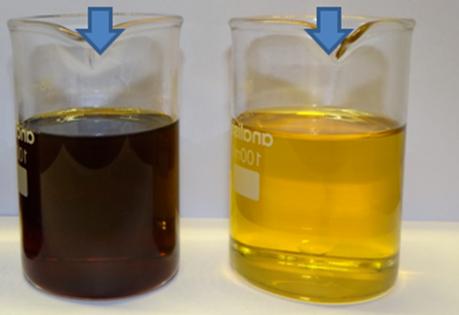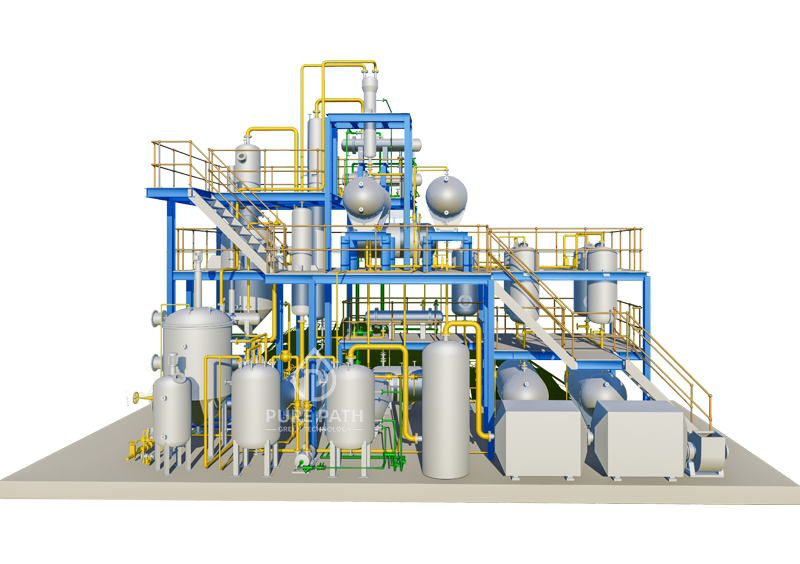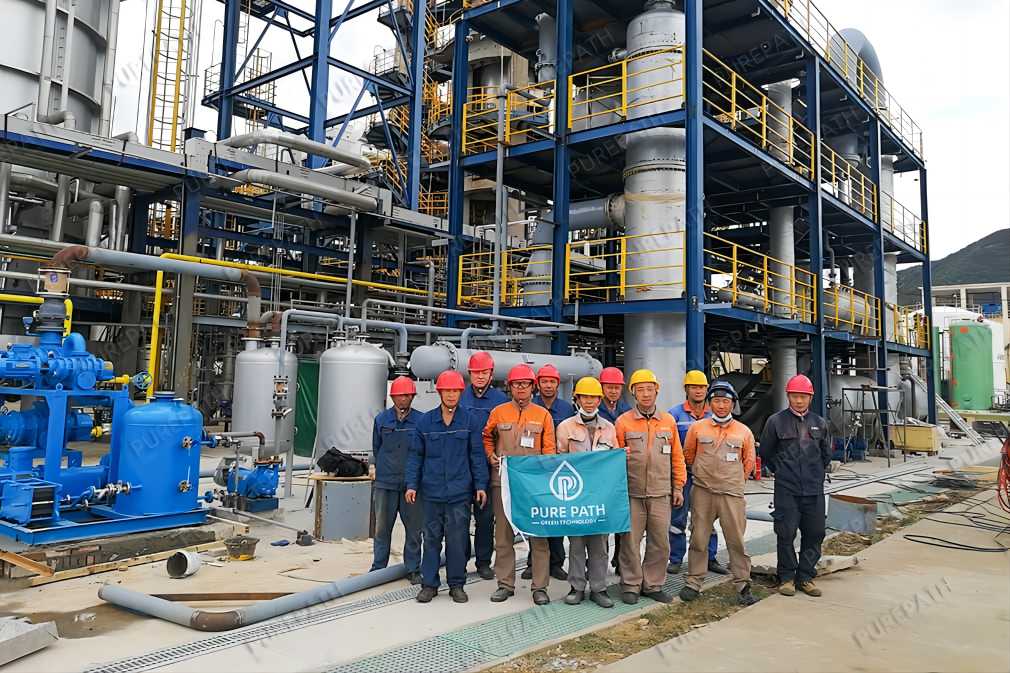Can Waste Oil Be Recycled to Lubricants?
In the quest for sustainability and environmental responsibility, industries worldwide are exploring innovative ways to minimize waste and maximize resource efficiency. One such area of focus is the utilization of recycled waste oil as a valuable resource in the production of lubricants. This shift not only reduces environmental impact but also offers economic benefits and promotes a circular economy.
Environmental Imperative for Waste Oil Recycling
The ubiquitous presence of used oil – a byproduct of countless vehicles, industries, and even our homes – paints a hidden threat to our environment. Improperly disposed of, this toxic liquid silently seeps into groundwater, suffocates soil ecosystems, and pollutes the air we breathe. The environmental imperative for comprehensive waste oil recycling is no longer a matter of debate, but an urgent call to action.

Imagine a powerful transformation: used oil, once a contaminant, re-emerging as a high-performance lubricant through sophisticated re-refining processes. This remarkable shift is not merely symbolic; it holds the key to safeguarding our planet’s future. Consider the cascading benefits:
- Resource conservation: Refining used oil demands significantly less energy compared to virgin oil, preserving finite resources and minimizing greenhouse gas emissions – a crucial step towards mitigating climate change.
- Pollution prevention: Every gallon recycled represents a gallon kept out of our waterways and soil, protecting delicate ecosystems and safeguarding public health.
- Circular economy champion: Embracing waste oil recycling fosters a responsible approach to resource management, minimizing waste and promoting a closed-loop system.
This environmental imperative extends beyond its ecological impact. Choosing recycled lubricants often translates to cost savings, making sustainability an economically attractive option. Furthermore, it fuels technological advancements in the recycling sector, creating jobs and stimulating the green economy.
What Kind of Waste Oil Can Be Recycled to Make Lubricants

Various types of waste oil can be recycled to produce lubricants, but it’s essential to ensure that the oil meets certain criteria to maintain quality and performance standards. Here are some common types of waste oil that can be recycled for lubricant production:
Used Motor Oil: This is one of the most common types of waste oil generated by vehicles and machinery. Used motor oil can be recycled to produce high-quality lubricants after undergoing a thorough refining process to remove contaminants and impurities.
Industrial Lubricants: Waste oil generated from industrial processes, such as hydraulic fluids, gear oils, and compressor oils, can also be recycled. These oils may contain additives and contaminants that need to be removed through specialized refining techniques.
- Transformer Oil: Transformer oil, used for cooling and insulating electrical transformers, can be recycled to produce lubricants. Proper filtration and purification processes are required to remove contaminants and ensure the quality of the recycled oil.
- Cooking Oil: Waste cooking oil from restaurants and food processing facilities can be recycled to produce environmentally friendly lubricants, often referred to as bio-lubricants. However, extensive refining is necessary to remove impurities and convert the cooking oil into a suitable lubricant base.
- Gear Oil: Used gear oil from automotive transmissions, industrial gearboxes, and other machinery can be recycled for lubricant production. Specialized processes are employed to separate contaminants and additives from the base oil, ensuring high-quality recycled lubricants.
- Hydraulic Fluids: Waste hydraulic fluids, commonly used in hydraulic systems and machinery, can be recycled to produce lubricants. Advanced filtration and purification techniques are essential to remove contaminants and maintain the performance of the recycled oil.
- Cutting and Metalworking Fluids: Waste oils generated from metalworking processes, such as cutting fluids and metalworking fluids, can be recycled for lubricant production. These oils often contain additives and contaminants that require removal through refining processes.
- It’s important to note that not all waste oils are suitable for recycling into lubricants. Oils contaminated with hazardous substances or mixed with incompatible materials may not be suitable for recycling and should be disposed of properly according to regulations. Additionally, proper testing and analysis are necessary to ensure that recycled lubricants meet industry standards for quality, performance, and environmental safety.

The Process of Waste Oil Recycling to Lubricants
The process of waste oil recycling to lubricants involves several steps aimed at purifying and refining the waste oil to produce high-quality lubricants. Here’s an overview of the typical process:
1. Collection and Segregation
The journey begins with the meticulous collection of used oil from diverse sources, including households, workshops, and industrial facilities. Rigorous segregation is crucial at this stage, as only mineral oils are typically eligible for re-refining into lubricants. Specialized procedures exist for handling synthetic and contaminated oils, ensuring proper disposal, and minimizing environmental impact.
2. Purification and Conditioning
Collected mineral oils undergo a multi-step purification process. Techniques like sedimentation and centrifugation remove water, dirt, and other contaminants, effectively cleansing the oil and preparing it for further processing. This stage can be likened to a pre-refining step, removing impurities that would hinder subsequent processes.
3. Distillation and Fractionation
The core transformation occurs through distillation. Heat separates the oil into distinct fractions based on their boiling points. Lighter and heavier components, detrimental to lubricant quality, are removed, leaving behind the valuable base oil fractions. This stage embodies the essence of recycling, extracting the desired elements from the used oil.
4. De-asphalting and Dewaxing
Residual asphalt and waxes, which negatively impact performance, are further eliminated using specialized techniques. Propane de-asphalting acts as a solvent, gently separating the unwanted asphalt while dewaxing chills the oil to induce wax crystallization and subsequent filtration. These processes refine the base oil, enhancing its suitability for lubricant applications.
5. Hydrotreating and Additive Incorporation
The oil undergoes hydrotreating, a chemical reaction with hydrogen that removes sulfur and other impurities, further enhancing its stability and quality. Finally, specific additives are incorporated to tailor the lubricant’s properties for specific applications like engine oil, hydraulic fluid, or industrial grease. This stage customizes the recycled oil, ensuring it meets the demands of diverse applications.
6. Quality Control and Final Product
Throughout the process, stringent quality control measures ensure the recycled lubricant adheres to industry standards and performs comparably to virgin oil. Rigorous testing verifies viscosity, flash point, and other crucial properties before the final product is released. This meticulous approach guarantees the recycled oil’s quality and performance.

The Importance of Proper Oil Disposal
Improperly disposing of used oil poses a significant threat to our environment. This toxic liquid can seep into water sources, contaminating drinking water and harming aquatic life. Additionally, spilled oil can contaminate soil, rendering it unusable for agriculture and harming vital organisms. Furthermore, burning used oil releases harmful pollutants into the air, contributing to respiratory problems and climate change.
Whether or not your waste oil is recycled, it’s important to follow proper protocol for disposing of your oil. Throwing used oil into the trash or dumping it down the drain can have a number of adverse environmental impacts. Not only does improper waste oil disposal increase the risk of contamination and pollution of natural resources, but it can also damage your plumbing and increase the safety risk in your home or business. It’s best to work with a professional company that specializes in waste oil disposal to ensure proper disposal in accordance with all applicable guidelines, regulations, and requirements. PUREPATH will provide you with tailor-made waste oil recycling solutions.







